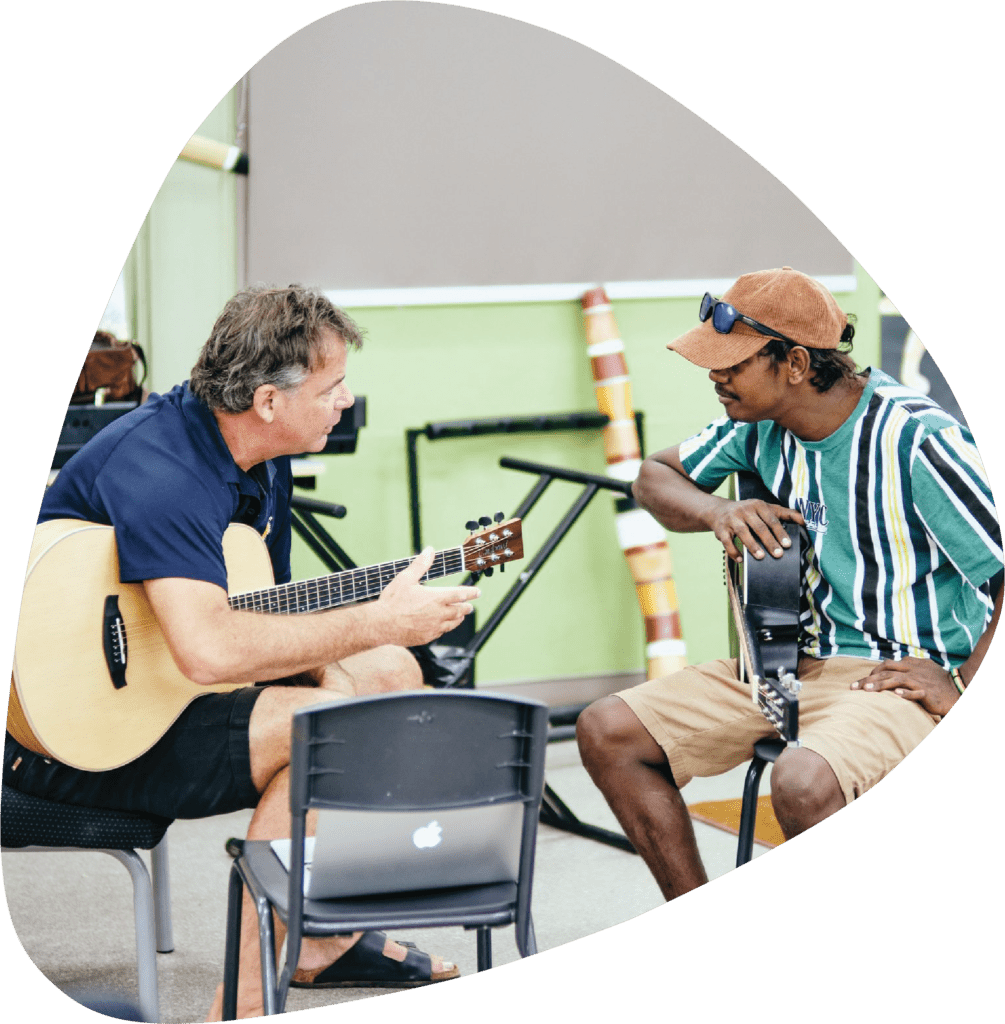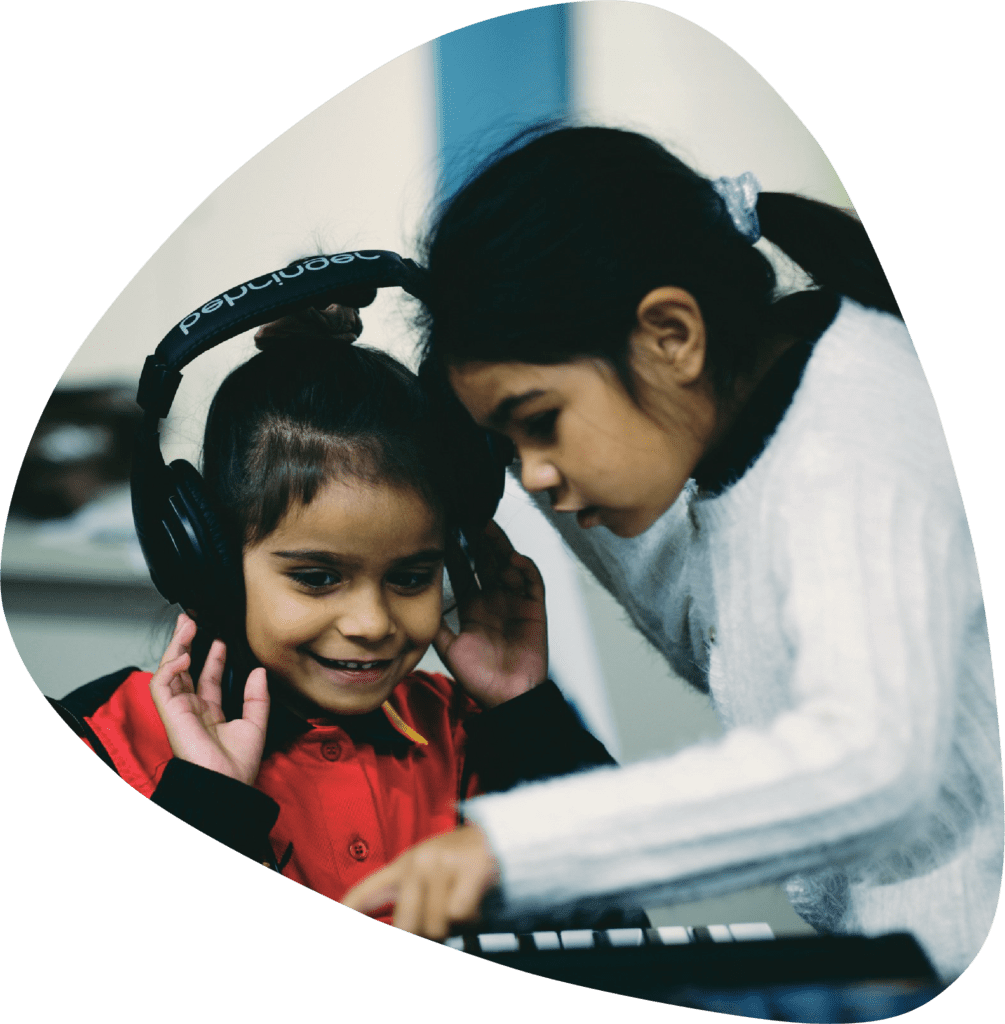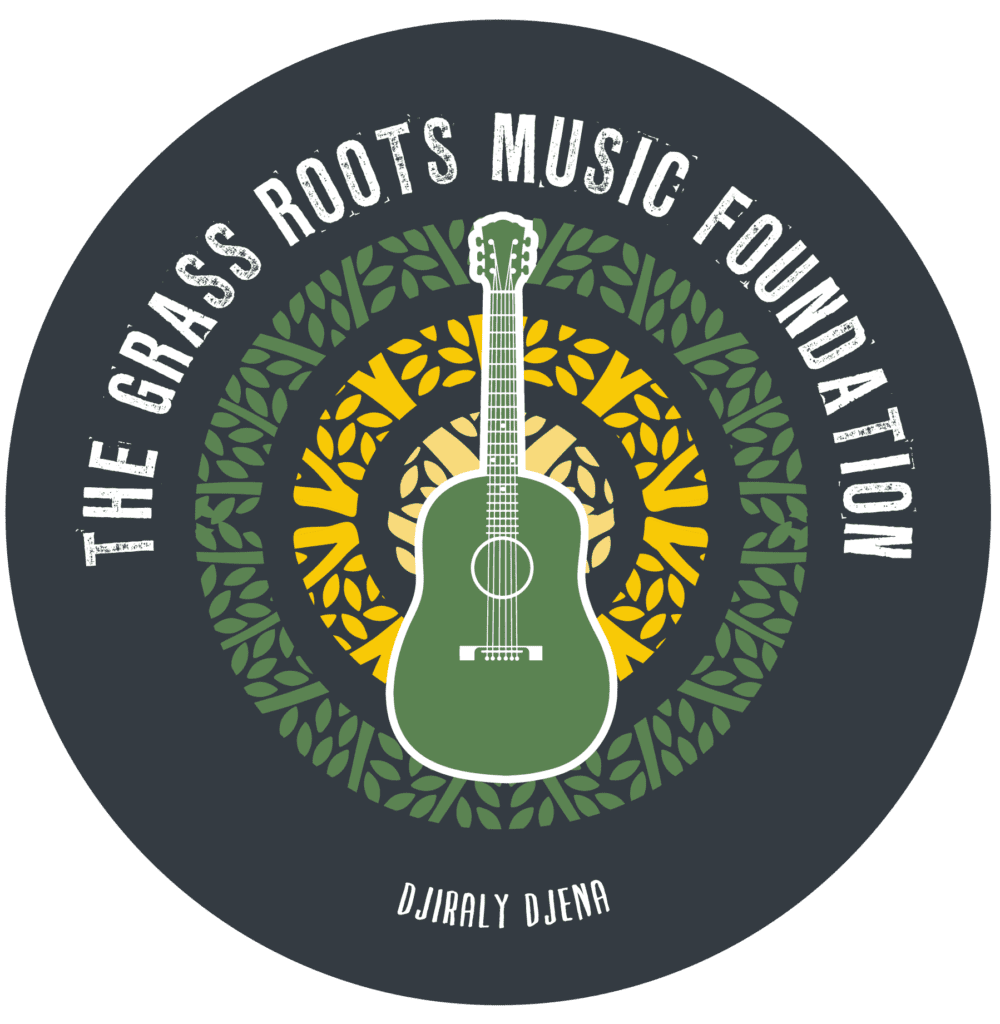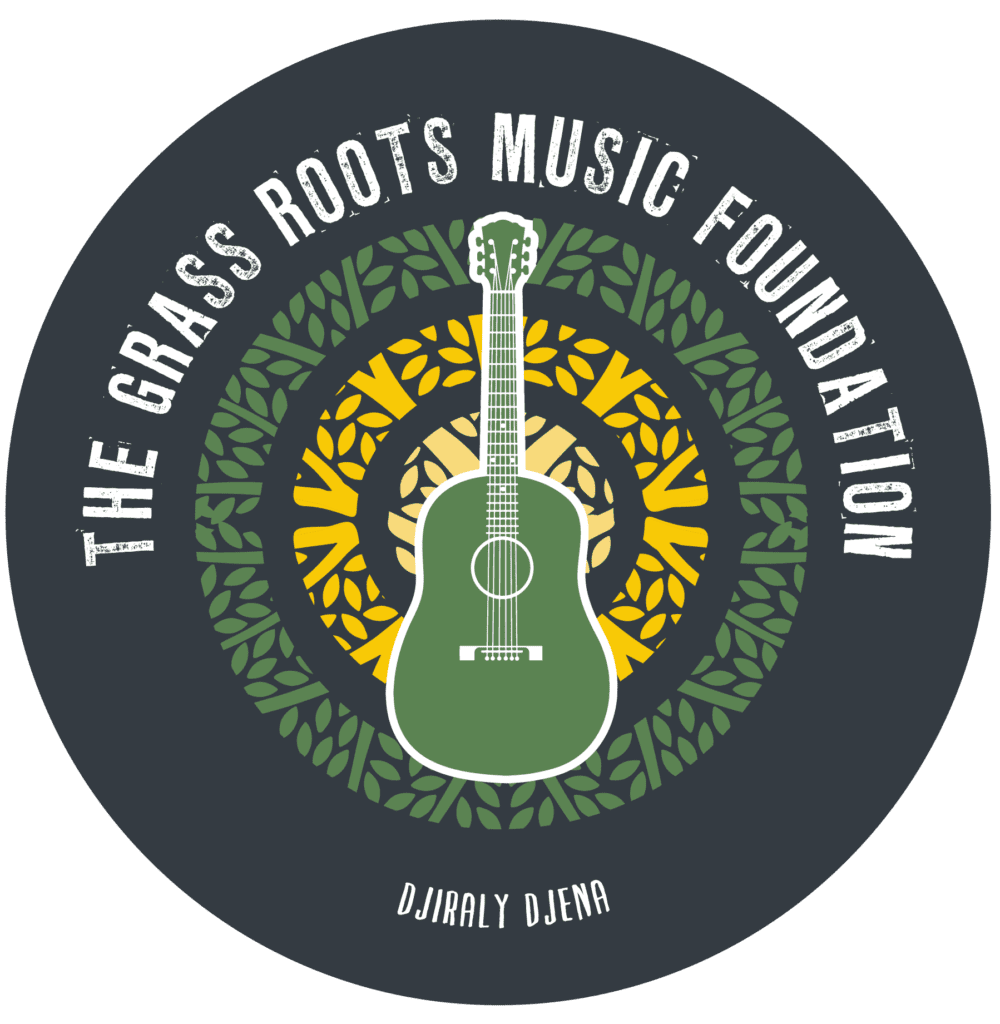

Our staff are trained in The Grass Roots teaching method which has had phenomenal, sustained success focusing on music for trauma relief, engagement, emotional regulation and behaviour management. Many of our students have experienced personal trauma, whilst some have simply never been given the opportunity to learn a musical instrument.
We cater to students of all academic and physical abilities and prioritise building meaningful and trusted relationships. Our staff work within each school to reinforce positive behaviours, raise self esteem and create a calming atmosphere of emotional and physical safety. Grass Roots participants learn life long musical and social skills, whilst developing an array of tools and strategies to help manage their varying emotions through music.


Some students jam freely, others like to compose their own music and many learn and perform works of other artists. We offer a creative outlet for frustration and negative emotions by providing a space free from judgement, where students efforts are neither graded nor streamed and everyone is welcome. This allows our students a sense of freedom to explore, learn, achieve and feel the absolute joy of playing and sharing music. Often our students need a short break from the classroom to refocus, so we simply utilise the power and healing force within music to positively impact the students’ personal, emotional and academic life.
Where appropriate, we also utilise Shinrin Yoku (forest bathing) techniques and nature grounding to help ease anxiety and to feel a sense of calm. When music is facilitated the Grass Roots way the results can be quite overwhelming and incredibly positive.

SO WHY DO WE BELIEVE SO STRONGLY IN THE POWER OF MUSIC?
Music is a universal language. Everyday the lived-in world is awash with different sounds: noise, music, speech, birdsong. It is a form of expression and communication that has proven time and again to transcend barriers, no matter how great. It is also one of the only activities that stimulates the entire brain.
When music enters your brain it triggers the pleasure centre, causing the release of dopamine, a neurotransmitter that makes you feel happy. Musical experiences in childhood can accelerate brain development, particularly in the areas of language and reading.
Music also improves general brain function, including memory, learning, speech and auditory processing. It is inclusive, creative and the science behind its benefits are undisputed, peer reviewed and internationally accepted.
As amazing as all this is, it is far from the only benefits of music education and exposure.
Here are some reviews
-
“I consider TGRMF a key part of our Social and Emotional Health strategy at [Our School]. While music is delivered through TGRMF it is confidence, improved self-worth, fun, mentoring, mental health check ins, individual student development and cultural enrichment that are the true gains for our children. TGRMF works in partnership with [Our School] to allow us to grow and improve. Our relationship is not fixed and the goals adapt as student confidence grows. I consider TGRMF to be pivotal to the [School] approach and continued future success.”
 Principal
Principal -
“TGRMF is a fantastic program that engages children in music through their interests as well utilizing and building on each individual students' musical skills. Instructors are very talented, creative and flexible in their work. Our school would love to see the TGRMF program expand over the years once we have established our vision and direction as a school.”
 Principal
Principal -
“I love the program for 2 main reasons, the first being that playing music has such a positive effect on people and these students have been given the opportunity to experience that joy that wouldn't normally be available through our mainstream system. The second is the way in which lessons are conducted - no pressure on students, just an opportunity to give music a go without judgement of a teacher/grades.”
 Music Teacher
Music Teacher -
“Students all really enjoy and look forward to their sessions. Students who have had negative experiences previously in music classes - and music is another thing they ‘can’t’ do - begin to enjoy playing and making music again, that’s the beauty of the program.”
 Head of Middle School
Head of Middle School -
“It is a privilege to be a part of. To watch the growth of our students in their confidence, ability and self is immeasurable.”
 Principal
Principal -
“TGRMF is integral to our Reconciliation Action Plan as it helps us meet the targets we wish to achieve. We want our school to be a safe and welcoming learning environment and community for all. We want our students to feel proud of Aboriginal Culture and acknowledge our history. The partnership with TGRMF helps us to do this in an honest authentic way.”
 Associate Principal
Associate Principal -
“We are fortunate to be able to deliver a program like TGRMF to our student population. The use of music as a therapy tool has shown positive effects in our students. They are always excited when it is TGRMF Day.”
 Principal
Principal -
“We are so lucky to have TGRMF at our school. Our kids have limited access to music and good role models. The choir also benefits from joint projects. Many of our kids now have instruments at home to practise on. Their families could not afford this luxury.”
 Teacher
Teacher
“I consider TGRMF a key part of our Social and Emotional Health strategy at [Our School]. While music is delivered through TGRMF it is confidence, improved self-worth, fun, mentoring, mental health check ins, individual student development and cultural enrichment that are the true gains for our children. TGRMF works in partnership with [Our School] to allow us to grow and improve. Our relationship is not fixed and the goals adapt as student confidence grows. I consider TGRMF to be pivotal to the [School] approach and continued future success.”
“TGRMF is a fantastic program that engages children in music through their interests as well utilizing and building on each individual students' musical skills. Instructors are very talented, creative and flexible in their work. Our school would love to see the TGRMF program expand over the years once we have established our vision and direction as a school.”
“I love the program for 2 main reasons, the first being that playing music has such a positive effect on people and these students have been given the opportunity to experience that joy that wouldn't normally be available through our mainstream system. The second is the way in which lessons are conducted - no pressure on students, just an opportunity to give music a go without judgement of a teacher/grades.”
“Students all really enjoy and look forward to their sessions. Students who have had negative experiences previously in music classes - and music is another thing they ‘can’t’ do - begin to enjoy playing and making music again, that’s the beauty of the program.”

